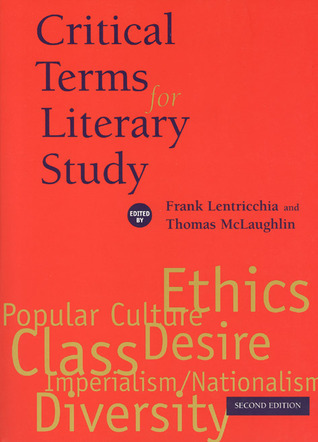Early one afternoon in 1996, I arrived at a lecture for my stage two Introduction to Critical Theory paper. Our lecturer was beaming with a fanboy glow but doing his best to maintain professional dignity as he introduced a guest speaker for the class: J. Hillis Miller.
How it came to be that a world-renowned American deconstructionist literary critic, who had once been the colleague of Jacques Derrida himself at Yale, was now standing at the lectern in front us in Auckland, New Zealand, I don't know.
But when things got underway, the sign/ificance of his lecture was beyond me - I didn't latch onto a word of it. There was an air of general mystification in the room. Then, part way through, Miller had a funny turn and attempted to carry on, but due to the existing abstract nature of the lecture, it wasn't immediate clear, as his words veered into physical abstraction, that he was in any distress. This lingered perhaps a little too long, until our lecturer stepped in and announced a premature end to the session. Apart from a natural concern for Miller's wellbeing, there was also a sense of relief to be let out early.
I don't intend to demean the great man by this anecdote. Rather, to tell a story of a time I was in the same room as one of the 'greats' - and to tell how I struggled to catch the meaning of things. (I suspect I might have been better placed to appreciate the occasion had I been in that lecture theatre today; and you'll be pleased to know that Miller went on to live a long life, passing away only last year.)
Some of that confusion is carried forth in this book, which was the text for the Introduction to Critical Theory paper (there's J. Hillis Miller, right there on the contents page - essay number 5, on Narrative). On net, the memory of the reading experience is of zoning out. As a generalisation, I suppose this might illustrate a kind of 'failure' of the essays, the discourses, to invite us (or perhaps I should say me) into their worlds. Those academic systems that contain back and forth argument but seem largely to be closed circuits, little self-contained worlds, with their own frameworks of thinking and languaging. This book is a sampler of those frameworks of thinking and languaging - lenses (but more than just 'lenses') for reading texts.
I turned up to take the course and first attempt to engage with this book at age 19. What hospitality did these essays, these critical terms, these academic constructs, offer me then? Offer me now, age 45?
And yet, it's a known thing that critical theories do leak out in society and make a change. Perhaps not via the study of a poem per se, but related questions about such things as power and identity go on to make their mark on society. I've done little so far to make social change my raison d'etre, but I did find a way in at a different level.
My university years (five) instilled a kind of fascination and hunger, a desire to swim in texts at certain depths, to think, to ask questions of culture and of knowledge. To tilt my head to one side with determined attention, like my dog does when I'm saying something to him he wants to understand. So for that I say thank you, J. Hillis Miller, and all the others. I often had no idea what you were talking about but the mode itself was fascinating. There are certain essays in this book that I've marked with a tick... a mark to note some sort of connection for me with the text, come about I suppose by some mixture of the writer's art and my (the reader's) own matrix of interests and ideas - 'Writing' by Barbara Johnson, 'Performance' by Henry Sayre, 'Class' by Daniel T. O'Hara; along with other sundry margin notations - I see 'Rhetoric' by Stanley Fish came in for a fair amount of that treatment. I said 'zoning out' earlier, but it's amazing how often the word 'interesting' turns up in the very brief notes I made after reading each essay.
I suppose that's something. The offering up of a range of ideas, often written from deep inside an obscure framework, that nonetheless come forth and exist as texts that contain the possibility of further investigation. That might not sound very exciting, but possibility and its close friend enquiry go a long way in life.
I'd always wanted to read this book properly, and I got there in the end, working my way through it over the course of four years, between other books, to make it feasible. I don't regret it, but I'm glad it's done. And something of that mysterious world now lies (or tells some kinds of truths), I think, in my subconscious, feeding the instinct to enquire.

